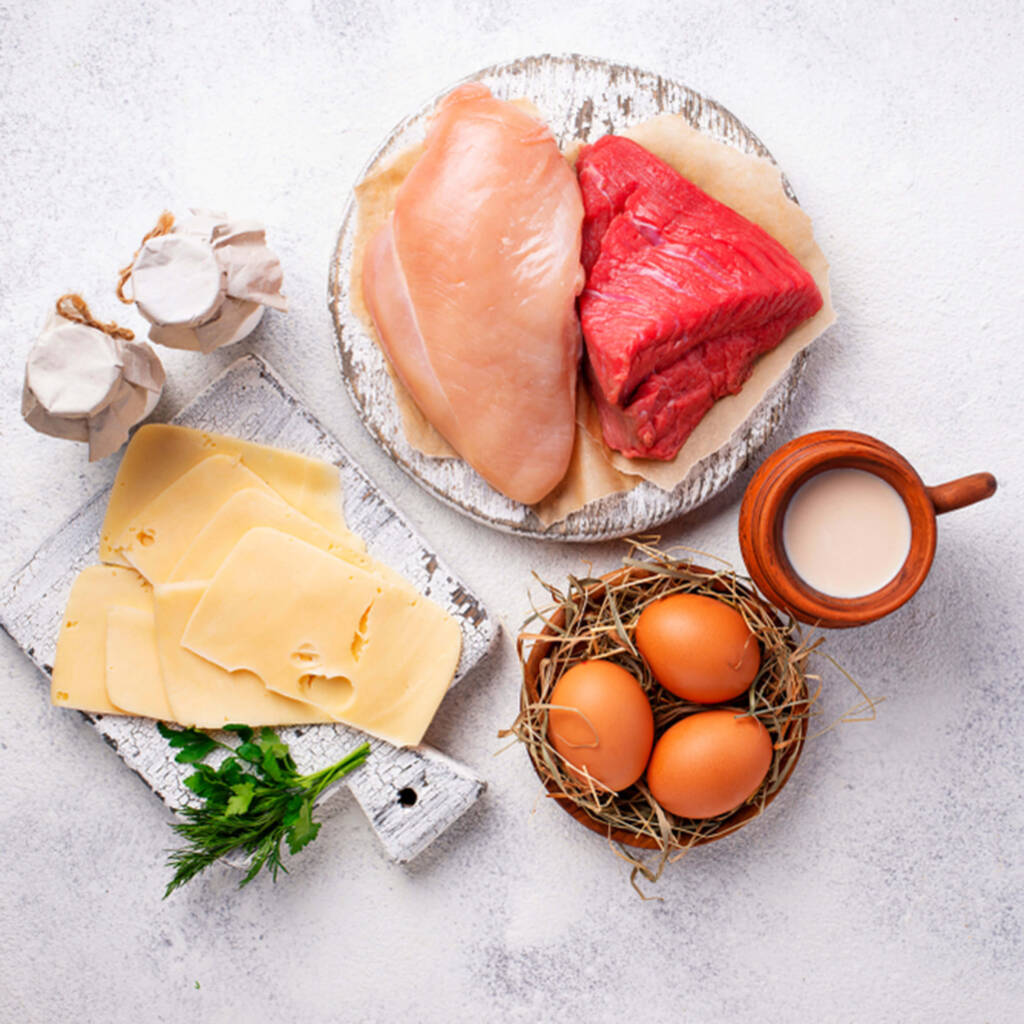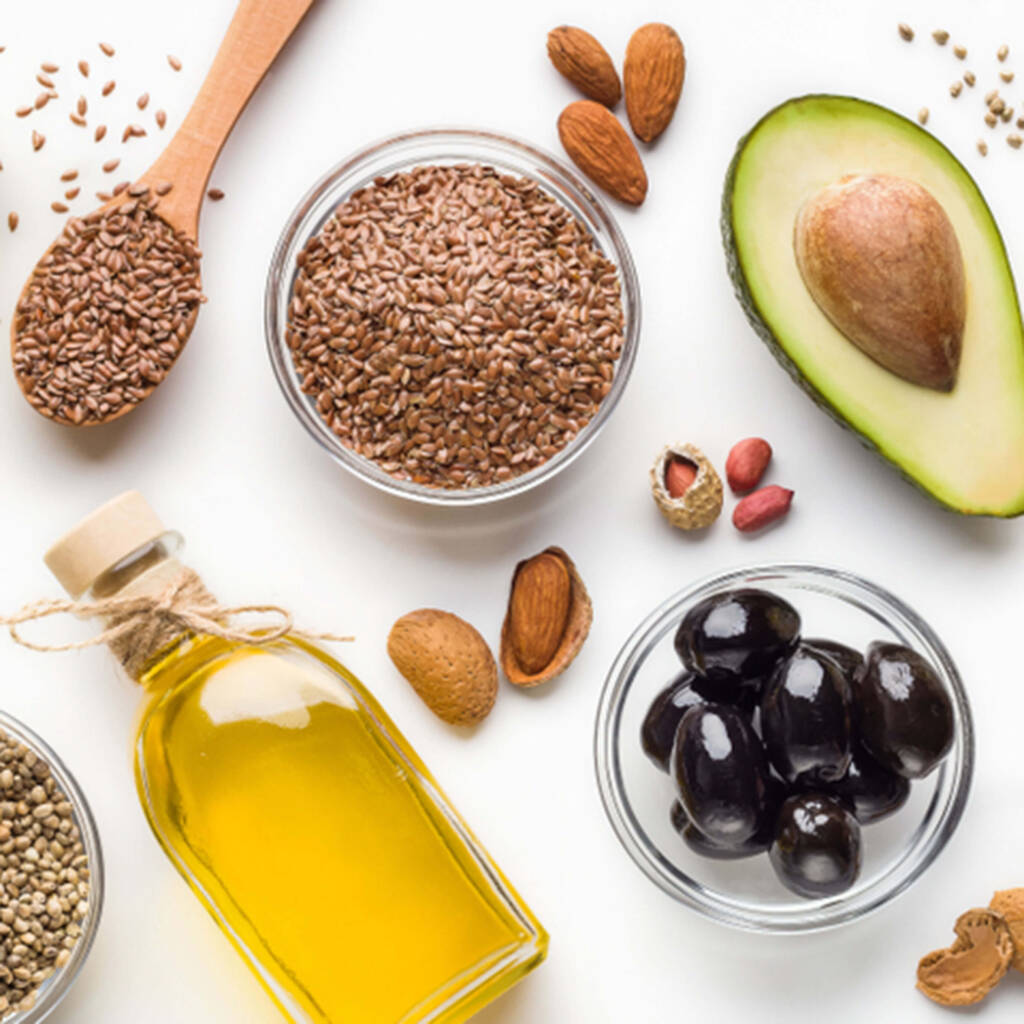Everything about fats and their importance for our bodies
Fat is indispensable for our bodies, and with nine calories per gram it is an important source of energy. It provides us with twice as much energy as protein and carbohydrates. Other important functions of fat are:
- Aroma and taste carrier for food
- Carrier of the fat-soluble vitamins A, D, E and K
- The fatty tissue in our bodies serves as insulation and provides a cushion for our internal organs and also an energy store. It is also involved in thermoregulation.

FATS ARE DIVIDED INTO DIFFERENT MAIN GROUPS
Fats can be broken down according to their different fatty acids. The three main groups are:
Saturated fatty acids
These are mainly found in foods of animal origin, e.g. in dairy products, meat, eggs. In vegetables they can only be found in palm and coconut fat. If we consume these fats in excess, they have a negative effect on our blood lipid levels and thus increase the risk of cardiovascular diseases.
Monounsaturated fatty acids
These help maintain a good balance of cholesterol levels in the blood. We find the monounsaturated fatty acids in avocado, olives and olive oil, peanuts, seeds (e.g. pumpkin seeds), pistachios.

Polyunsaturated fatty acids
These are the only group of fats which are is essential for human bodies, i.e. vital, and must be supplied to the body with food. They are mainly divided into omega-3 and omega-6 fatty acids. The correct ratio of these two fatty acids to one another is crucial for health. Those who focus exclusively on omega-6 fatty acids (e.g. in sunflower oil or safflower oil) are doing themselves no favours, because to a high degree these can be pro-inflammatory. On the other hand, those who make sure to consume enough omega-3 fatty acids, which have a positive effect on the cardiovascular system, as these can help to prevent heart attacks and strokes. Omega-3 fatty acids also have an anti-inflammatory effect and help maintain good blood lipid levels.
These foods provide a balance between the two omegas:
- Nuts (especially tree nuts)
- Linseed / linseed oil
- hemp oil
- rapeseed oil
- fatty sea fish (e.g. salmon, herring, mackerel)
Caution: Linseed and hemp oil have a very high content of omega-3 fatty acids and are sensitive – they quickly become rancid. It is therefore advisable to buy small quantities and store them in the refrigerator after opening. In addition, linseed and hemp oil should not be overheated. These oils are more suitable for cold dishes, such as salad dressings.
How much fat should I eat?
The British Nutrition Foundation recommends consuming between 20 – 35% (max. 40%) of your daily energy in the form of fat. With an average daily calorie requirement of 2000 calories for adults, that would be 44 – 78g fat (1g fat = 9 calories).
But be careful: not all fat is the same! Your menu plan should contain a mixture of saturated, unsaturated and polyunsaturated fatty acids. Ideally in a ratio of one third each.
Healthy fats come for the most part from vegetable sources. Those who want to do something good for themselves are increasingly turning to high-quality fats such as vegetable oils, nuts, seeds, kernels or olives. Animal fats are to be consumed in moderation.
As a guide – ten grams of fat are contained in, for example:
- 15g nuts
- 30g hard cheese
- 75g salmon
- 1 tbsp oil / butter
- 30g chocolate
The following recommendations apply per day:
– Maximum 1x 100-120 g meat (preferably lean, such as poultry, beef, veal)
– 3 servings of dairy products such as 250ml milk, 180g yogurt and 30g hard cheese
– 2-3 tablespoons of oil for cold and warm dishes
– 30-40g nuts / seeds / kernels, e.g. as a snack in between
– If necessary: 1 tbsp butter / margarine
Cold cuts should be consumed maximum once a week.

And the cholesterol?
Cholesterol is wrongly demonized because we also need this fat-like substance for life. It is part of the cell walls and the starting substance of various hormones, and it is also required for the production of digestive bile acid. Cholesterol is only found in animals and humans. For the most part, we produce it ourselves, mainly in the liver. If we take in more cholesterol with food, the body’s own production is reduced.
There is a certain balance between self-production and consumption through food. If our blood contains too much cholesterol, it goes back to the liver. Only when the absorption of cholesterol back into the liver is disturbed does the amount of cholesterol in the blood rise above a desirable level.
Your cholesterol level can only be reduced by about 10 percent with diet alone, but it is still worthwhile to ensure you have a balanced diet. A balanced diet does not mean a low-cholesterol diet. Ensure a high intake of antioxidants (protective substances), dietary fibre, and omega-3 fatty acids. In addition, aim to consume as little saturated fatty acids as possible, in order to prevent too much “bad” cholesterol (LDL = low density lipoprotein, i.e. lipoprotein with low density). This suggested diet advice can protect against the effects of high cholesterol levels.